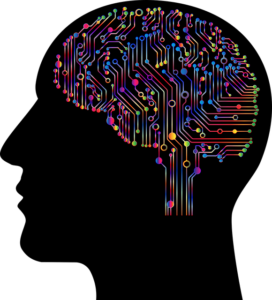5 applications of Artificial Intelligence that are disrupting the banking sector – IBS Intelligence
5 applications of Artificial Intelligence that are disrupting the banking sector
By Joy Dumasia
The adoption of AI in different enterprises has increased due to the COVID-19 pandemic. Since the pandemic hit the world, the potential value of AI has grown significantly. The focus of AI adoption is restricted to improving the efficiency of …….

5 applications of Artificial Intelligence that are disrupting the banking sector
By Joy Dumasia
The adoption of AI in different enterprises has increased due to the COVID-19 pandemic. Since the pandemic hit the world, the potential value of AI has grown significantly. The focus of AI adoption is restricted to improving the efficiency of operations or the effectiveness of operations. However, AI is becoming increasingly important as organizations automate their day-to-day operations and understand the COVID-19 affected datasets. It can be leveraged to improve the stakeholder experience as well.
Artificial Intelligence (AI) has been around for a long time. AI was first conceptualized in 1955 as a branch of Computer Science and focused on the science of making “intelligent machines” machines that could mimic the cognitive abilities of the human mind, such as learning and problem-solving. AI is expected to have a disruptive effect on most industry sectors, many-fold compared to what the internet did over the last couple of decades. Organizations and governments around the world are diverting billions of dollars to fund research and pilot programs of applications of AI in solving real-world problems that current technology is not capable of addressing.
Artificial Intelligence enables banks to manage record-level high-speed data to receive valuable insights. Moreover, features such as digital payments, AI bots, and biometric fraud detection systems further lead to high-quality services for a broader customer base. Artificial Intelligence comprises a broad set of technologies, including, but are not limited to, Machine Learning, Natural Language Processing, Expert Systems, Vision, Speech, Planning, Robotics, etc.
The following are 5 applications of Artificial Intelligence that are disrupting the banking sector:
Automated advice is one of the most controversial topics in the financial services space. A robo-advisor attempts to understand a customer’s financial health by analyzing data shared by them and their financial history. Based on this analysis and goals set by the client, the robo-advisor will be able to give appropriate investment recommendations in a particular product class, even as specific as a specific product or equity.
- Customer service/engagement (Chatbot)
Chatbots deliver a very high ROI in cost savings, making them one of the most commonly used applications of AI across industries. Chatbots can effectively tackle most commonly accessed tasks, such as balance inquiry, accessing mini statements, fund transfers, etc. This helps reduce the load from other channels such as contact centres, internet banking, etc.
- Credit Scoring / Direct Lending
AI is instrumental in helping alternate lenders determine the creditworthiness of clients by analyzing data from a wide range of traditional and non-traditional data sources. This helps lenders develop innovative lending systems backed by a robust credit scoring model, even for those individuals or entities with limited credit history. Notable companies include Affirm and GiniMachine.
- General Purpose / Predictive Analytics
One of AI’s most common use cases includes general-purpose semantic and natural language applications and broadly applied predictive analytics. AI can detect specific patterns and correlations in the data, which legacy technology could not previously detect. These patterns could indicate untapped sales opportunities, cross-sell opportunities, or even metrics around operational data, leading to a direct revenue impact.
AI can significantly improve the effectiveness of cybersecurity systems by leveraging data from previous threats and learning the patterns and indicators that might seem unrelated to predict and prevent attacks. In addition to preventing external threats, AI can also monitor internal threats or breaches and suggest corrective actions, resulting in the prevention of data theft or abuse.
ALSO READ: Applications of Artificial Intelligence In Banking Q1 2022
Previous Article
Finastra announces Banking as a Service collaboration with Microsoft for SMEs
Read More
Next Article
LenDenClub launches FinTech venture fund for seed and pre-series start-ups
Read More







